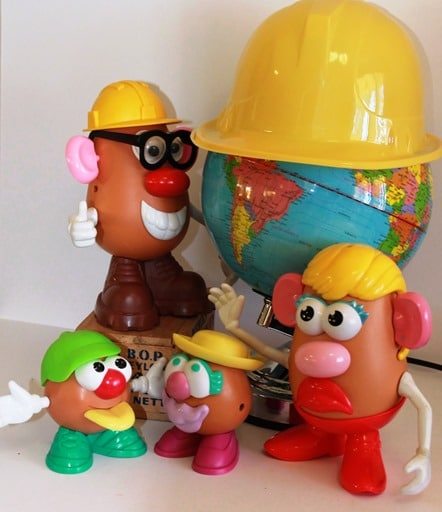Originally posted on January 29, 2019 @ 12:59 PM
One of our most popular articles in 2014 in terms of the number of comments. We recently asked “What is Safety”? and got quite a mixed response but I think this article by Dr Rob just about nails it!
 I often get called into organisations under some concern about safety, many see my work as something about ‘behaviors’ but that is not what I am on about. Some think my writing is about safety but its not, and some want me to give ‘fixit’ type stories and illustrations on how to improve safety at work, but I don’t. Can I just say this, if your world is just about safety, then your world is too small.
I often get called into organisations under some concern about safety, many see my work as something about ‘behaviors’ but that is not what I am on about. Some think my writing is about safety but its not, and some want me to give ‘fixit’ type stories and illustrations on how to improve safety at work, but I don’t. Can I just say this, if your world is just about safety, then your world is too small.
When I come in to organisations I often start with a range of consultations, ‘walk-arounds’, observations and preliminary training, then deliver some services or maybe a program and it doesn’t take long before someone will come up to me and say: ‘Rob, this is not just about safety is it?’ and when that happens I know we are starting to get somewhere.
Safety shouldn’t be about safety, it should be about living and learning. When safety is made into some bureaucratic, legal or club exercise, it has lost the plot. This is why I prefer to talk much more about risk than I do about safety. The moment you tell someone you are into safety they think you are either the fun police or some legal nerd who loves checklists. If safety is some engineering exercise of shifting objects to keep some system clean, then I think we have lost the plot. If safety is about trying to memorize sections of the Act so that we can dominate and rule others, then we have lost the plot. If safety is a power trip so that we can bully others to ‘keep them safe for their own good’, then we have lost the plot. Safety should be about none of these things. When we put learning first, people first, relationships first, respect first and living first, then we might get to the heart of safety.
When I worked during the Canberra bushfires it was interesting to see how different worldviews understood safety. When I worked with government and the church on the risk management plan for World Youth Day, it was again interesting to see how different worldviews understood safety. During the bushfires in Canberra it was the Department of Community Services that was given charge of managing the human fall out of the fires. This ensured that people-focused-people with compassion, empathy, effective communicators and human understanding worked on the front line with damaged people. Whilst object focused people and logistical focused people are important during a crisis they are not the ones best to communicate or engage with people about risk.
I remember one heated debate during plans for World Youth Day about the threat of a pandemic or chemical attack. We sat at the table whilst some technical people told us how they would empty a building, erect tents and shower people in the street. For them, safety was a logistical problem. We then asked these technical people how they would deal with young children in this crisis and they simply stated the process, easy. We then asked had they thought about such issues of abuse, exposure and dignity of people and children during this process and turned to the excuse of safety to justify an exemption to such things. It was then that the head of the Department of Families and Community Services told the technical people that she would have them charged under the Child Protection Act if they sought to over ride it with their safety crusade. Hmmm, maybe safety is not so simple.
When someone comes out of my training and tells me they now communicate better to their teenager and their relationship has become more respectful, I know they get safety. When someone tells me that their relationships have improved after the safety training, I know they get safety. When someone tells me that their view of safety has been revolutionized and be made more human, then I know they get safety.
When I wrote my first book and considered titles I would have liked to call it ‘Learning Makes Sense’ but then maybe no safety people would have ever looked at it. I still get people write to me and tell me that I should tell workplace war stories and horror stories, tell people how to be safe and belt others over the head with regulations. I don’t think such an approach is either educative or enlivening. So, I called my book Risk Makes Sense and without any publisher or marketing machine have sold close to 10,000 copies. People want to know about human judgment and decision making not how we can belt others over the head with what we know about regulations.
People want to know how we can live with others to make better decisions in living. And, if we do this, then our safety world will get much bigger.



Do you have any thoughts? Please share them below